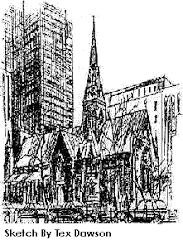(b Salamanca, 1564; d Seville, 23 June 1598). Youngest brother of (1) Jerónimo de Peraza
(i) and an exceptionally precocious player. He spent his childhood at
Seville and Toledo, where his father was principal shawm player in the
cathedral establishments. At the competition held on 16 May 1584 at
Seville to decide on a successor to Diego del Castillo, Peraza
so impressed Cardinal Rodrigo de Castro, Archbishop of Seville, that he
asked the cathedral chapter to award him the organist's prebend, at an
annual salary of 200 ducats. Francisco Pacheco described the occasion in Libro de descripcion (Seville, 1599): ‘Finding that Guerrero [the maestro de capilla]
was confronting the competitors with some of the hardest tests of skill
known to musicians, but that scarcely had he announced a task before Francisco Peraza
had accomplished it to perfection, even adding his solution of variants
to the problem, the cardinal was overwhelmed with admiration of such
skill found only in the rarest prodigies'. Within two years Peraza's
salary had been increased substantially; on 6 June he was awarded
another 1000 reales annually, which gave him a stipend closely in line
with Guerrero's. The maestro de capilla generously ‘embraced him and exclaimed that he had an angel in every finger’. Philippe Rogier, maestro de capilla to Philip II, also held him in high esteem. Because he was widely in demand, Peraza
often overstayed his leaves. The chapter dismissed him on 27 June 1590
for a long and unauthorized absence, but reinstated him later that year.
He was the only Spanish organist of the time whose portrait has survived. The many compositions – keyboard works, villancicos, chanzonetas, motets and sainetes (theatre music) – mentioned by Pacheco, his first biographer, are no longer extant. The identity of the Pedraza or Peraza
who composed a single surviving organ piece superscribed ‘Medio
registro alto, Tono I’ (divided keyboard, 1st mode), printed from a
17th-century Escorial manuscript in L. Villalba Muñoz's Antología de organistas clásicos
(Madrid, 1914, rev. 2/1971 by S. Rubio), has been disputed. The many
sequential passages in the right hand give the work a Baroque flavour,
placing Francisco de Peraza ahead of his time if it is truly his. - Grove Music Online
